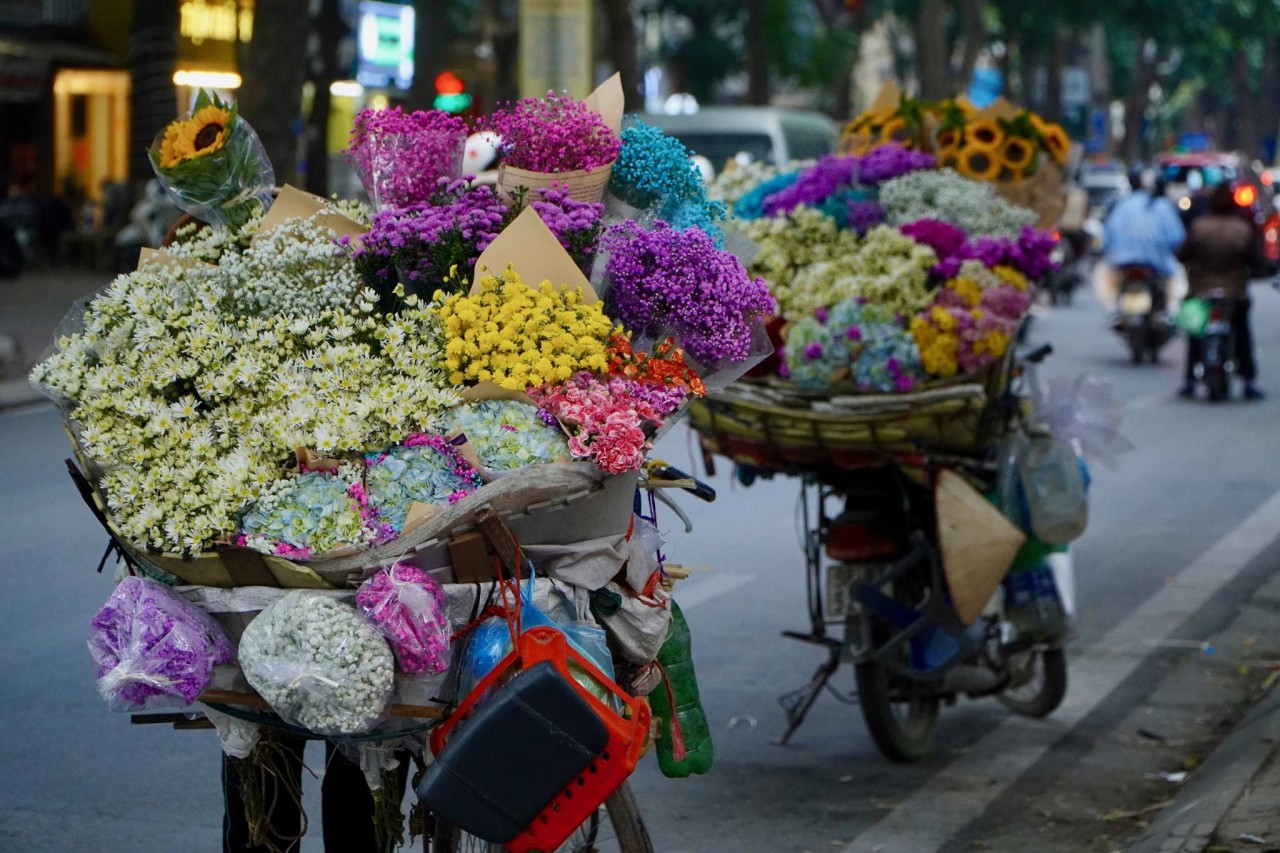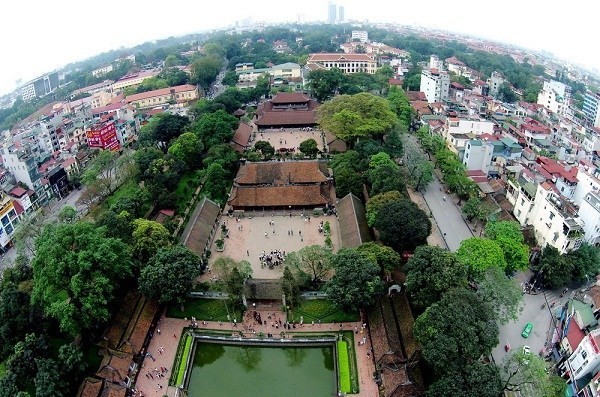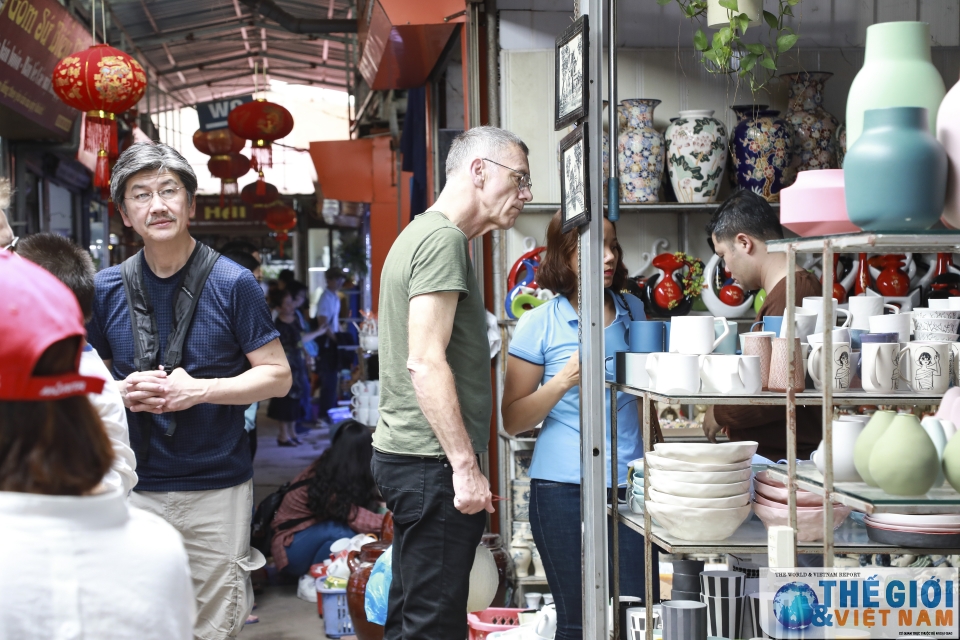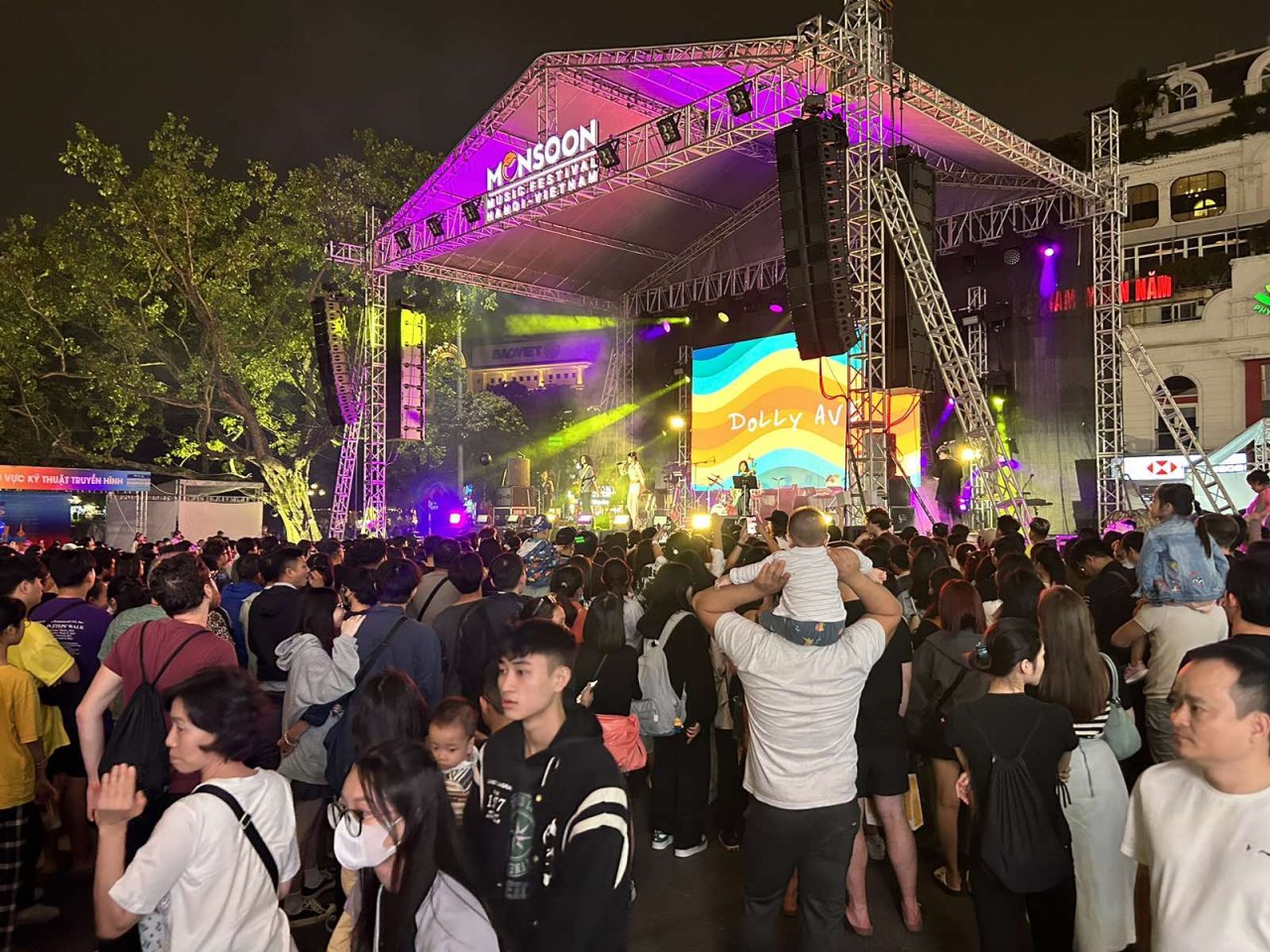
Towards a sustainable development of Hanoi's culture
Latest
 |
| Autumn in Hanoi is a beautiful time of year. (Photo: Tuan Viet/WVR) |
Draft Law on Capital (amended) related to the cultural field set a direction towards Hanoi's sustainable developments. In addition, the Law must preserve cultural traditions and add new cultural values which is suitable to each development stage of the city.
After 10 years of the Capital Law implementation, Hanoi has had remarkable achievements in various fields, however, remained shortcomings and limitations which restrained substantive changes or rapid, sustainable developments of the Capital.
Public – private cooperation in sustaining and promoting cultural heritage values
Associate Professor, PhD. Pham Thi Thu Huong, Principle of Hanoi University of Culture (HUC) affirmed that it is necessary to issue the Capital Law (amended) to institutionalize viewpoints, orientation, and targets set out by the Politburo. This guidance is practically suitable and potentially creating a breakthrough mechanism to effectively mobilize and exploit the Capital’s strengths and potential.
The Principle of HUC expected the Capital Law (amended) to include issue-specific and long-term regulations on mechanism and policies of culture, thus the target of “harmoniously and smoothly combining cultural identity preservation and development with economic development in which culture and human are the goal, foundation, resources, and driving forces for the Capital’s developments” can be fulfilled.
Contributing to the draft Law on Capital (amended) related to Article 24 on “Protecting and developing culture & sport”, Associate Professor, PhD. Pham Thi Thu Huong commented that the viewpoint of the Law Drafting Committee is to sustainably develop the Capital’s culture, ensure the preservation of cultural traditions, add new cultural values which are suitable to each development stage of Hanoi, therefore, diversify and develop the culture of Hanoi and ‘Hanoian’ to be an iconic symbol of Vietnamese culture. This is a suitable and correct viewpoint.
 |
| After 10 years of the Capital Law implementation, Hanoi has had remarkable achievements in various fields. (Photo: VNN) |
In this context, Associate Professor, PhD. Pham Thi Thu Huong pointed out that instead of using the word “protection”, “preservation” should be used to express a fact that cultural traditional values must be promoted while new cultural values should be creatively formed. Basically, we should not only protect these values but also effectively exploit them.
Contributing to a draft on public – private cooperation in the cultural field, Associate Professor, PhD. Pham Thi Thu Huong noted that the National Assembly has passed Resolution No. 98/2023/QH15 dated on June 24, 2023, to pilot several specific mechanism and policies for the development of Ho Chi Minh City allowing the city to implement public – private cooperation in investment projects in the field of culture – sport.
According to Associate Professor, PhD. Pham Thi Thu Huong, this policy should be officially applied in Hanoi and included by Law such as the under-developed Draft Law on Capital (amended).
If these investment projects rely on the state budget, they will be prolonged and limited in scope. After the project completion, the management, operation, maintenance of site still required a considerable amount of resources including both finance and manpower.
If private investors and society participate in public works and projects in the field of culture – sport, the investment process will be faster and more thorough. Moreover, more projects can be completed from extra budget and the operation & maintenance will be more effective.
In the field of culture, public-private cooperation in protecting and promoting the value of tangible cultural heritage is the most difficult and complicated because it must ensure the originality, integrity and safety of the heritage itself, and the surrounding landscape space while there must be effective forms of promoting heritage values to attract private investment. However, reality shows that the public-private partnership model has been applied, deployed and brought effective by many countries around the world.
In Vietnam, several heritages, such as the Yen Tu complex of monuments and landscapes, Hue ancient capital relic complex, Trang An Landscape complex, Phong Nha – Ke Bang, etc., have been preserved and maintained by this cooperation which brought undoubtable benefits.
 |
| Bat Trang traditional pottery village of Hanoi is a tourist attraction for both domestic and foreign tourists. (Photo: Trung Hieu/WVR) |
Cultural activities and traditional occupation preservation serve as the key foundation
Commenting on on the necessity and specific mechanism for cultural industry development in the draft Law on Capital (amended), MSc. Tran Dung Hai, Hanoi University of Culture further emphasized that Hanoi, as the capital, definitely requires the development of cultural industries. Thus, there a need for specific policies and mechanisms, specifically for the development of cultural industries in Hanoi.
In addition to general regulations, the 2012 Capital Law also has a separate Article on Cultural Conservation and Development. However, the majority of regulations only stop at the level of providing policy directions and lack specific regulations to encourage the development of cultural industries commensurate with their specificity and important role, importance of Hanoi capital in the development of cultural industries.
In the draft Law on Capital (amended), in addition to directional regulations on cultural development in general and cultural industries in particular, the draft has specific regulations to develop these cultural industries in Hanoi such as: "Cultural and commercial promotion zone" is an area where service and commercial activities are concentrated with conditions of security, order, and environmental protection higher than with general regulations to attract tourism, promote commercial activities in the area, improve residential life, and preserve traditional industries and professions.
 |
| Performance at the Monsoon Music Festival 2023 in Hanoi. (Photo: Vinh Ha/WVR) |
In addition, there have been regulations on new investment projects in the cinema, performing arts, fine arts, photography, exhibitions, and cultural tourism industries to enjoy incentives; Allow the establishment of the Capital's Heritage Conservation and Cultural Development Fund, an extra-budget state financial fund to invest in research, protect cultural heritage, and support educational, promotional and creative activities. created based on the Capital's cultural heritage.
Therefore, MSc. Tran Dung Hai commented to change the term "Trade and cultural promotion zone" to "Cultural and trade promotion zone", taking cultural activities and preserving traditional industries as the key foundation, commercial and service activities are additional and modified activities that will meet the needs of tourists and visitors, serve the development of cultural tourism activities, and avoid distortions, commercialize areas with this specific nature in future implementation practices.
At the same time, Mr. Hai suggested to add other cultural industries to the draft such as new investment projects in software and entertainment games, crafts, fine arts, etc, to create a system of cultural industries that support each other in development, creating a harmonious overall cultural industry of Hanoi Capital.













